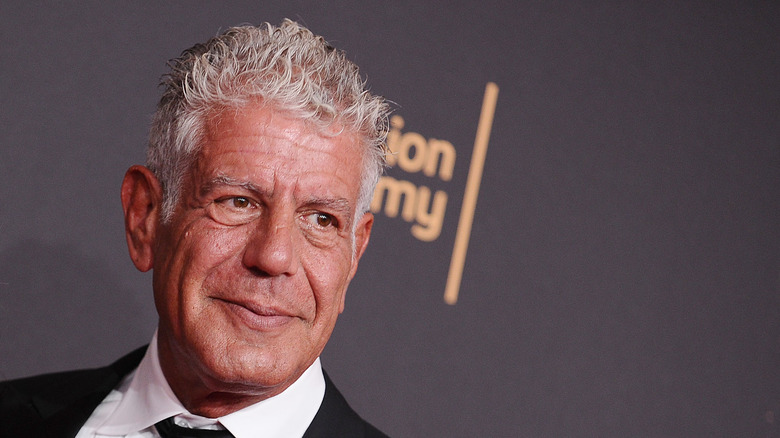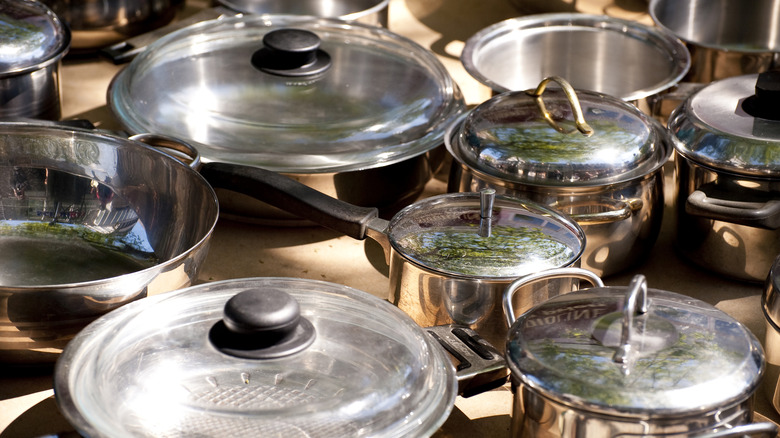Anthony Bourdain's Secret To Buying Pans Fit For A Chef (On A Budget)
I love my collection of Kirkland pots. They're probably from the '90s, and the quality is exceptional; they're thick and heavy, with slightly bowed out sides and copper bottoms. I scoured Goodwill for basics before moving into my first apartment, and I knew I'd found a deal the moment I picked one up and felt its heft. I bought three — one large, one medium, and one small — for $6 each. They've served me well. Anthony Bourdain would have been proud.
In his 2000 memoir, Kitchen Confidential, the chef advised readers against buying the lightweight pots and pans sold in stores. "Most of the [pots and pans] sold for home use are dangerously flimsy, and the heavyweight equipment sold for serious home cooks is almost always overpriced," he explained. "There's no reason to buy new and no reason to pay a lot." Take your time building your cookware collection, and remember that quality beats quantity when it comes to cookware. A few carefully selected, high-quality pieces will serve you better than a big set of cheap stuff.
Bourdain didn't take his chances at Goodwill. Instead, he recommended sourcing pots and pans from restaurants when they go out of business. There's no shortage of restaurants selling off their stuff, he explained, citing the industry's high failure rate. By following his advice, you'll know you're getting professional-quality cookware — at an ultra-low price.
How Anthony Bourdain scored secondhand pans
No, you don't need to hang around your local burger joint like a cookware-hungry vulture waiting for it to go out of business. Instead, Bourdain recommended checking newspapers for restaurant auctions. These days, you can find local auctions with a quick Google search, instead of relying solely on auction sites. You'll have less competition, you'll be able to check the secondhand cookware for any scratches or dents in person, and you won't have to pay steep shipping prices for hefty pots and pans.
And they should be hefty: Bourdain stressed that point. It doesn't matter how high-quality the materials are, he explained. Thin cookware will burn your food. But how do you know if it's heavy enough? According to Bourdain, you should ask yourself if you'd use it as a weapon. If you think the pan could knock out an intruder, then it's good to go. "A proper saute pan ... should cause serious head injury if brought down hard against someone's skull," he wrote. Just don't try to test it out on an unsuspecting auctioneer.

